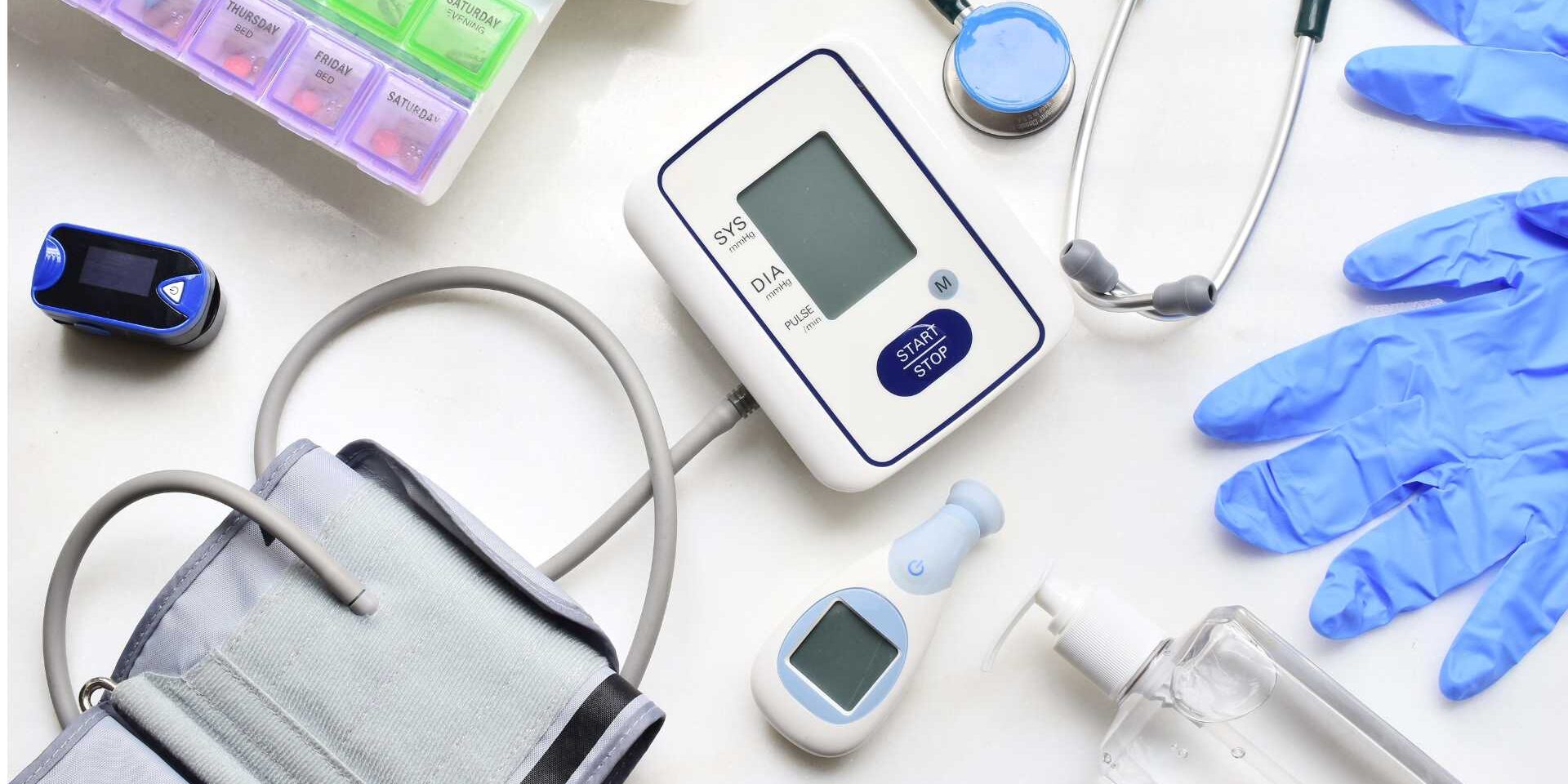Fixing Healthcare: Tech Leaders Reveal HealthTech’s Critical Targets
HealthTech innovations are revolutionizing the U.S. healthcare system, enhancing patient outcomes, efficiency, and access amid rising costs and disparities.
This Techronicler article compiles opinions from business leaders, thought leaders, and tech professionals on the area most urgently needing disruption.
Experts spotlight prior authorization’s bureaucratic delays, care coordination’s fragmentation, and data interoperability’s silos, which exacerbate burnout, errors, and inequities.
They argue for AI-driven tools to streamline approvals, predictive analytics for seamless transitions, and universal platforms for secure data sharing, potentially cutting costs 20-30% and improving access for underserved communities.
As 2025 brings agentic AI advancements, these targeted interventions could redefine care delivery, prioritizing patients over processes in a $4.3 trillion industry.
Read on!
Prior Auth Delays Burn Out HCPs
Health Care Providers (HCPs) currently spend 20% of their time wrangling with the script journey. The time, tension, and anxieties of dealing with the vast ecosystem of plugged together services, from researching medications to script placement, is a leading cause of burnout, and, per a recent study, PTSD in both clinic staff and patients.
A considerable part of this frustration centers on the prior authorization process, which can be a harrowing, byzantine saga that oftentimes requires multiple attempts. Per a NY Times article, “If you ever want to see a doctor go apoplectic, mention prior authorizations at a cocktail party.”
Our company offers a marketplace of 35k medications with deep AI-supported information gathering capabilities and digital tooling geared for HCPs specific needs that includes coverage look ups, step therapy requirements, sample ordering, real-time benefits checks, an intake pharmacy, and an AI-enabled hub services platform for prior authorization submissions and appeals.
Our goal is to make the script journey painless.

Lawler Kang
Director of Talent, Prescriber Point
Access Barriers Fragment Patient Care
In my opinion, access to care is the area of healthcare that most urgently needs disruption. Despite some improvements in patient outcomes and efficiency as a result of HealthTech innovations, most people still struggle to get the help they need because the process is fragmented.
Specialist referrals, insurance, even scheduling – all require multiple steps and often too many phone calls. It shouldn’t take inside knowledge to navigate the system.
We need HealthTech solutions that simplify these processes and redirect focus on the patient, not revenue. That means streamlining how information is shared, how care is coordinated, and how provider shortages are managed across entire regions.
I believe the next wave of innovation will prioritize people trying to access care, not just those delivering it. As in law, the system must shift from protecting its revenue models to truly serving the public.

Luke Malek
Lawyer, Strategist & Advocate, Malek + Malek
Prior Auth Slows Urgent Treatment
One of the areas that needs HealthTech disruption the most, in my opinion, is prior authorization. The current procedure is antiquated, laborious, and frequently causes delays in patient care.
It irritates patients who require prompt access to therapies and puts a significant administrative strain on doctors.
HealthTech can significantly reduce wait times, decrease denials, and free up clinical staff to concentrate on providing treatment by optimizing approvals through intelligent automation and improved interface with EHRs.
Enhancing this single step can have a cascading effect on the system, saving money, time, and above all improving patient outcomes.

Sanju Zachariah
Founder & CEO, Portiva
Data Silos Delay Critical Care
Interoperability and accessibility of patient data are the most pressing areas for HealthTech disruption. Critical health information is trapped across disparate systems by the current siloed infrastructure, which delays care and raises costs, particularly for patients who are juggling several providers.
Clinicians and patients can benefit from real-time insights through simplified, secure data-sharing enabled by smart health technology, which can lead to quicker decisions, better results, and a more equitable healthcare experience.

Spencergarret Fernandez
Founder & CEO, SEO Echelon
Inventory Waste Drains Care Budgets
We believe inventory and procurement systems need urgent disruption. Hospitals lose millions through mismanaged, overpriced supply chains.
HealthTech can bring transparency, automation, and smart forecasting. That shift could free up essential care budgets.
We see outdated processes hurt smaller providers the most. They face high costs with minimal negotiation leverage.
If HealthTech levels that field, care becomes more equitable. Automated systems reduce overstock, expired inventory, and shortages.
With AI, procurement could become proactive, not reactive. That would lower costs and improve patient care.
We’re building our model to support that transformation. It’s time hospitals controlled their supply chains fully.

Ivan Rodimushkin
Founder & CEO, XS Supply
Caregiver Support Lacks Tech Tools
There is a black hole when it comes to simple, cost effective and customizable solutions to support caregivers of aging family members.
According to the U.S. Department of Health and Human Services, those over the age of 85 are projected to more than triple by 2050, and an estimated 70 percent of older adults will require some type of long-term care assistance.
Caregivers are left searching for resources to support activities like self-care (bathing / dressing), meal preparation, transportation, medication management and / or nursing support at home with no guidance.
Developing tech platforms that allow caregivers to enter the details of their unique situation, find coordinated local resources to support their needs, within a budget that works for them is not only a game changer, but a necessity.

Diti Sangoi
Founder, Devi8 Ventures
Rural Access Needs Mobile Clinics
The most urgent area for HealthTech disruption is access, especially in rural and underserved communities. It’s not about whether people need care; it’s about whether care ever reaches them. That’s the area where HealthTech must lead.
At Mission Mobile Medical Group, we use predictive analytics and real-time data to bring mobile clinics directly to communities where the need is greatest, before health issues become emergencies.
Too many families wait months for basic care because the system wasn’t built to reach them. By shifting from fixed locations to flexible, tech-enabled models, we eliminate barriers like transportation gaps, provider shortages, and longstanding systemic neglect.
HealthTech shouldn’t just streamline; it should serve. I’ve seen what happens when our partners show up…outcomes improve, costs decrease, and dignity is restored.
We don’t always need more infrastructure; we need smarter, more responsive care delivery. HealthTech has the power to meet people where they are.

Amanda LeFever
President & CFO, Mission Mobile Medical Group
Heart Care Coordination Needs Integration
If there’s one area in healthcare that’s begging for disruption, its care coordination—especially for heart patients. As a heart and vascular service line leader, I see how vulnerable patients feel after a major cardiac event.
They’re sent home with new medications, follow-ups, and lifestyle changes—yet left to navigate a maze of disconnected providers. True care coordination means more than just sharing records.
It means real-time updates between care teams, remote monitoring that alerts us to warning signs early, and digital tools that keep patients engaged and supported at home.
Health Tech can bring all this together creating a safety net that spans hospital to home. When care is connected, patients heal faster, families worry less, and outcomes improve.
This isn’t just about fixing broken systems—it’s about meeting people where they are and making sure they never feel alone on the road to recovery.

Corrin McCloskey
Executive Director, Tanner Health
Mental Health Access Needs Tech Boost
If there is one area in the US healthcare system that requires HealthTech to step in, it is mental health.
There are serious shortages of mental health care, both in terms of providers and available appointments. Almost 19% of U.S. adults have a mental illness, according to Mental Health America, and more than 54% of these adults do not receive mental health care.
Tools like telemedicine, AI diagnostic aids, mental health apps, and more are also very promising in terms of providing access to care, especially in regions that are underserved or in rural areas. By taking a dual-systems approach that leverages technology for remote therapy supervision of patients and interventional support in real time, we can destigmatize and confront issues so that sufferers receive the care they need with a more efficient, cost-effective solution.

Arsen Misakyan
Founder, LAX Car
On behalf of the Techronicler community of readers, we thank these leaders and experts for taking the time to share valuable insights that stem from years of experience and in-depth expertise in their respective niches.
If you wish to showcase your experience and expertise, participate in industry-leading discussions, and add visibility and impact to your personal brand and business, get in touch with the Techronicler team to feature in our fast-growing publication.











